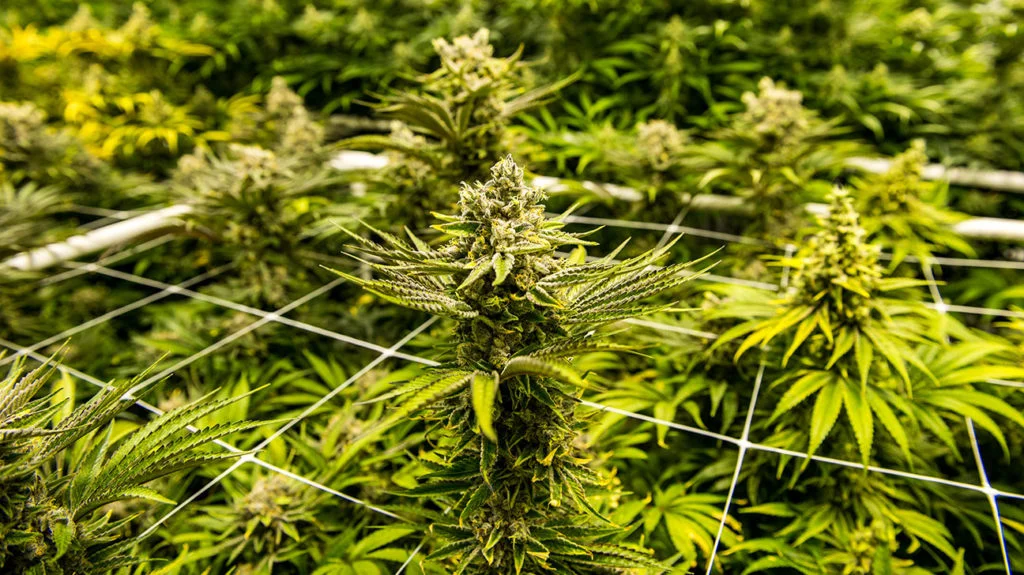Introduction:
In recent years, cannabis has emerged from the shadows of stigma to become a topic of widespread discussion and debate. With shifting attitudes and evolving legislation surrounding its use, it’s essential to understand the basics of cannabis and its effects. In this comprehensive guide, we’ll explore the science behind cannabis, its various forms, potential benefits, risks, and legal considerations.
Understanding Cannabis:
Cannabis, also known as marijuana, weed, or pot, is a plant that contains hundreds of chemical compounds, including cannabinoids, terpenes, and flavonoids. The two primary cannabinoids found in cannabis are tetrahydrocannabinol (THC) and cannabidiol (CBD), each with distinct effects on the body and mind.
The Endocannabinoid System:

Before delving into the effects of cannabis, it’s crucial to understand the endocannabinoid system (ECS), a complex network of receptors and neurotransmitters found throughout the body. The ECS plays a vital role in regulating various physiological functions, including mood, appetite, sleep, and pain perception.
Types of Cannabis:
- Sativa: Sativa strains are known for their energizing and uplifting effects, making them popular for daytime use. They often produce a cerebral high characterized by increased creativity, focus, and sociability.
- Indica: Indica strains are prized for their relaxing and sedative properties, making them ideal for evening or nighttime use. They typically induce a body-heavy high, promoting relaxation, pain relief, and sleep.
- Hybrids: Hybrids are crossbred strains that combine the characteristics of both sativa and indica varieties. They offer a balance of effects, catering to a wide range of preferences and needs.
Effects of Cannabis:
- Psychoactive Effects: THC is the primary psychoactive compound in cannabis, responsible for producing the euphoric “high” associated with marijuana use. It interacts with cannabinoid receptors in the brain, altering mood, perception, and cognition.
- Therapeutic Effects: CBD, on the other hand, is non-psychoactive and has gained recognition for its potential therapeutic benefits. Research suggests that CBD may help alleviate symptoms of various conditions, including chronic pain, anxiety, epilepsy, and inflammation.
- Short-Term Effects: Short-term effects of cannabis use may include altered perception of time and space, impaired memory and concentration, increased heart rate, dry mouth, and bloodshot eyes.
- Long-Term Effects: Chronic cannabis use may lead to dependence, addiction, cognitive impairment, respiratory issues, and mental health problems, particularly in vulnerable individuals.
Medical Applications of Cannabis:
- Pain Management: Cannabis has been used for centuries as a natural remedy for pain relief. Both THC and CBD have analgesic properties and may help alleviate chronic pain associated with conditions such as arthritis, fibromyalgia, and multiple sclerosis.
- Anxiety and Depression: Some studies suggest that CBD may have anxiolytic and antidepressant effects, potentially offering relief for individuals struggling with anxiety disorders, depression, and PTSD.
- Epilepsy: CBD has received FDA approval for the treatment of certain forms of epilepsy, such as Dravet syndrome and Lennox-Gastaut syndrome. It has shown promising results in reducing the frequency and severity of seizures in patients resistant to conventional therapies.
Legal Considerations:
The legal status of cannabis varies widely across different countries and jurisdictions. While some countries have legalized cannabis for medicinal and/or recreational use, others maintain strict prohibitionist policies. It’s essential to familiarize yourself with the laws and regulations governing cannabis in your area to avoid legal consequences.
Conclusion:
Cannabis remains a complex and multifaceted plant with both potential benefits and risks. While it has gained recognition for its therapeutic properties, particularly CBD, it’s essential to approach cannabis use with caution and awareness of its effects. Whether you’re considering cannabis for medical purposes or recreational enjoyment, understanding its science, effects, and legal considerations is key to making informed decisions. By staying informed and responsible, you can navigate the world of cannabis with confidence and clarity.
